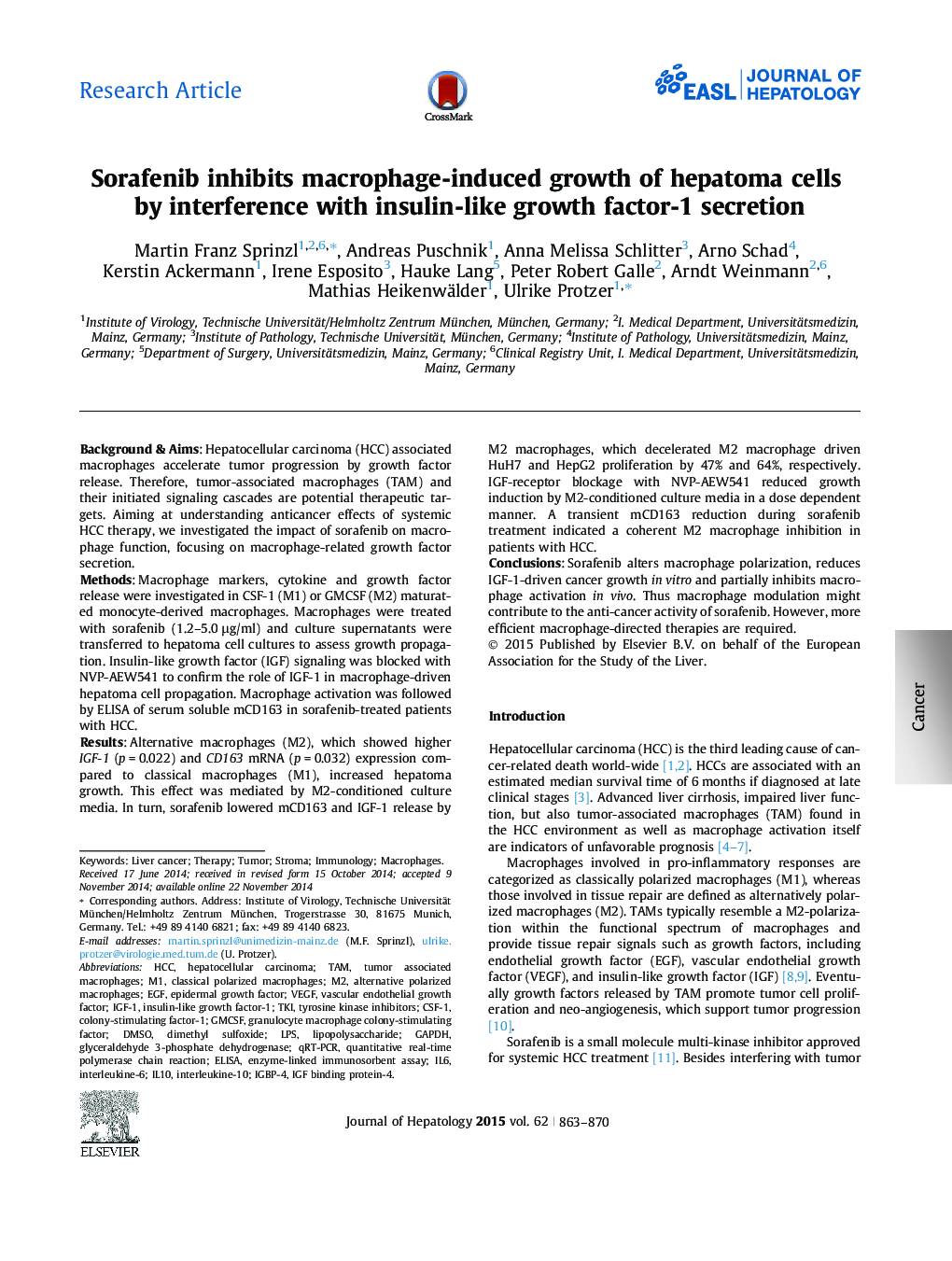| کد مقاله | کد نشریه | سال انتشار | مقاله انگلیسی | نسخه تمام متن |
|---|---|---|---|---|
| 6101636 | 1211107 | 2015 | 8 صفحه PDF | دانلود رایگان |

Background & AimsHepatocellular carcinoma (HCC) associated macrophages accelerate tumor progression by growth factor release. Therefore, tumor-associated macrophages (TAM) and their initiated signaling cascades are potential therapeutic targets. Aiming at understanding anticancer effects of systemic HCC therapy, we investigated the impact of sorafenib on macrophage function, focusing on macrophage-related growth factor secretion.MethodsMacrophage markers, cytokine and growth factor release were investigated in CSF-1 (M1) or GMCSF (M2) maturated monocyte-derived macrophages. Macrophages were treated with sorafenib (1.2-5.0 μg/ml) and culture supernatants were transferred to hepatoma cell cultures to assess growth propagation. Insulin-like growth factor (IGF) signaling was blocked with NVP-AEW541 to confirm the role of IGF-1 in macrophage-driven hepatoma cell propagation. Macrophage activation was followed by ELISA of serum soluble mCD163 in sorafenib-treated patients with HCC.ResultsAlternative macrophages (M2), which showed higher IGF-1 (p = 0.022) and CD163 mRNA (p = 0.032) expression compared to classical macrophages (M1), increased hepatoma growth. This effect was mediated by M2-conditioned culture media. In turn, sorafenib lowered mCD163 and IGF-1 release by M2 macrophages, which decelerated M2 macrophage driven HuH7 and HepG2 proliferation by 47% and 64%, respectively. IGF-receptor blockage with NVP-AEW541 reduced growth induction by M2-conditioned culture media in a dose dependent manner. A transient mCD163 reduction during sorafenib treatment indicated a coherent M2 macrophage inhibition in patients with HCC.ConclusionsSorafenib alters macrophage polarization, reduces IGF-1-driven cancer growth in vitro and partially inhibits macrophage activation in vivo. Thus macrophage modulation might contribute to the anti-cancer activity of sorafenib. However, more efficient macrophage-directed therapies are required.
Journal: Journal of Hepatology - Volume 62, Issue 4, April 2015, Pages 863-870